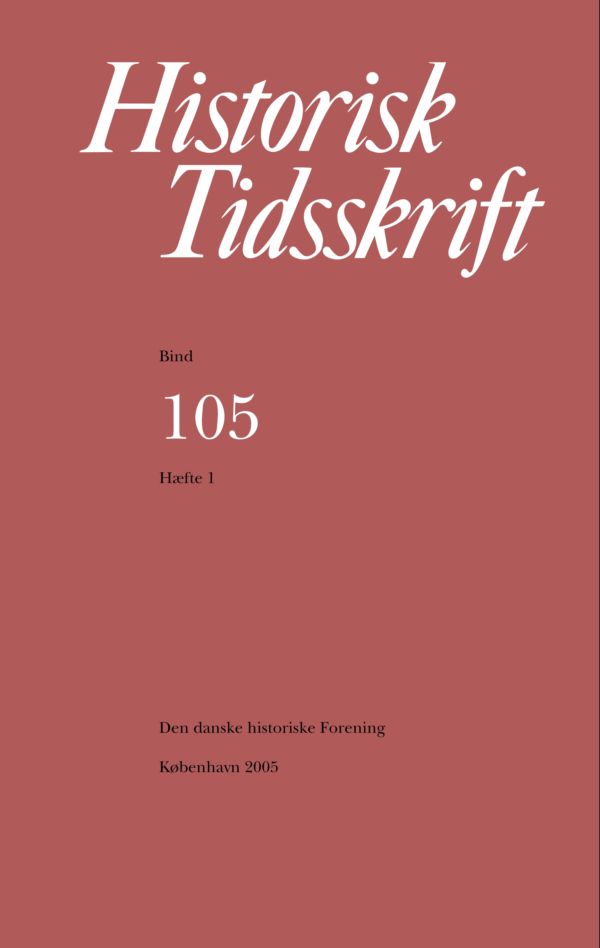Mellem ord og bord. Danske madkulturelle diskurser omkring år 1900
Resumé
Food Culture in Denmark ca. 1900The present study deals with food culture and the process of modernization in Denmark at the turn of the twentieth century. It analyses the manner and substance of what was written about food in a selection of newspapers and magazines between 1888 and 1913, devoting particular attention to the question of domestic science, which became a school subject in 1900. An important premise of the study is the idea that food culture involves not only the physical acts of producing, buying, cooking and eating food, but also thought and behaviour patterns as reflected in language. Based on this conception, the study addresses the question of how food quality was conceived during the period, and pays special attention to the central historical dichotomy between food as a means of pleasure and food as merely a means of physiological nourishment. Three distinct, though interdependent discursive forms emerge from an analysis of the wide range of pronouncements regarding food that comprise the basis of the study. In the first, food is used as a mark of social distinction at a time when the media's increasing coverage of domestic life functioned as a means of both enlightenment and reading enjoyment. Here, the most important players were women of the middle and upper social strata. In the second form of discourse, prevalent among experts on nutrition and pioneers of domestic science, food is treated mainly as nourishment. Finally, there was a form of discourse where food figures as part of a movement for social and societal reform, and this was especially prominent in connection with initiatives to promote domestic science in the school curriculum. The article questions the adequacy of the currently prevalent view of Danish food culture around 1900. This view, which is premised on a predominantly culinary and aesthetic conception, focuses too exclusively on the degrading effects of industrialization and other concomitants of modernity, highlighting the contrast to the flourishing food culture of the 1880s. The present study broadens this limited conception by adding another aspect of modernity relevant to food culture, namely, how food formed part of an effort to promote orderliness in the sense of both moral propriety and physical tidiness. It thus shows how the sensual aspects of food were in a certain sense diminished and how humans were reduced to cogwheels in the machinery of modern society, where food becomes merely a means of nutrition. However, by focusing on conceptions of quality in different discursive contexts, the study shows at the same time how the traditional dichotomy between the sensual enjoyment and the functional aspects of food becomes problematic, and it is questioned whether the predominantly negative view of the modernization of food culture is reasonable. It is demonstrated that the conception of what constitutes food quality is highly dependent on context and that within the discursive forms analysed in the study ideals regarding taste and the enjoyment of food were integrated with a physiological-functional view. At the same time increased public attention to food in a certain sense produced a mental reality in food culture, a reality that consists in the way of thinking, writing, reading and daydreaming about food. Thus, the enjoyment of food did not disappear, but it was set within a framework of new conditions. On the whole, the present study points to the necessity of taking discursive forms into account when dealing with food culture if one wishes to attain a more sophisticated understanding of its modern history, including the function of food in the interpretation and appropriation of cultural and societal modernity. Translated by Michael WolfeDownloads
Publiceret
Citation/Eksport
Nummer
Sektion
Licens
Ophavsret til bidrag i Historisk Tidsskrift tilhører forfatterne og Den danske historiske Forening som udgiver af Historisk Tidsskrift. For illustrationer gælder den ophavsret, som står anført i billedteksten. Ophavsretslovens almindelige bestemmelser gælder, hvilket vil sige, at ophavsretten gælder i 70 år efter forfatterens død. Bidrag i Historisk Tidsskrift må derfor, med forbehold for en ”moving wall” på tre år, frit downloades, læses, gemmes, anvendes og citeres (med kildeangivelse) i privat og videnskabelig sammenhæng, men de må ikke helt eller delvis genudgives af tredjepart, heller ikke i redigeret form, uden tilladelse fra forfatterne og Den danske historiske Forening. Henvendelse skal i så fald rettes til Historisk Tidsskrifts redaktion på histtid@hum.ku.dk.





